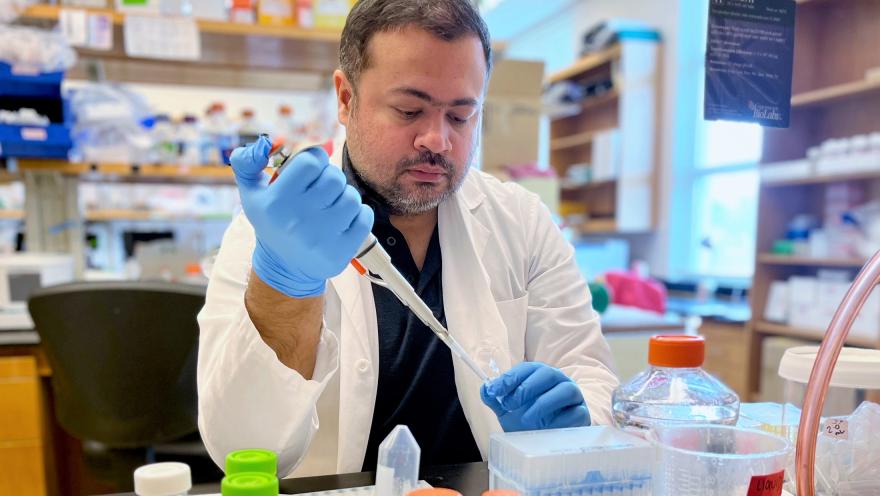The ALS Association has awarded $1.6 million to fund four promising preclinical research projects through its Lawrence and Isabel Barnett Drug Development Program.
The Lawrence and Isabel Barnett Drug Development Program, named in honor of the prominent entertainment executive and television and theater actress, provides researchers with up to $500,000 over two years to support the preclinical assessment of emerging ALS therapies in preparation for clinical testing. The program prioritizes projects that have a high probability of entering the clinical phase of testing within three years.
“There is an urgent need for new and improved therapies for ALS. While we’ve seen growth in the number of clinical trials in recent years, we must continue to expand the drug development pipeline,” said Dr. Paul Larkin, director of research at The ALS Association. “Investment in the late preclinical stage from initiatives like our Barnett Drug Development Program drives the crucial transition from academic research project to industry drug development effort. This support makes additional investments in the next stage of drug development less risky for other private and public funders, increasing our chances of finding new treatments and possibly a cure for this devastating disease.”
Between 2016 and 2021, The ALS Association committed more than $10 million from the Barnett Drug Development Program to support 32 projects. Twenty-one of these projects have either attracted new partners to help advance the program or have received follow-on funding from other funders, such as the National Institutes of Health, Department of Defense ALS Research Program, pharmaceutical/biotech companies or venture capitalists.
2022 Awardees
The four grants awarded during the 2022 funding cycle will support investigations into several therapeutic approaches targeting a diverse set of biological pathways shown to underly the development and progression of ALS.
Sapan Gandhi, Ph.D., Drishti Discoveries Ltd, and co-principal investigators Pamela Shaw, M.D., and Richard Mead, Ph.D. ($500,000), are aiming to confirm the ability of their proprietary technology to significantly silence the ATXN2 gene and preserve motor function in ALS mouse models in the pursuit of developing a long-term treatment for ALS. The project will be carried out in collaboration with the Sheffield Institute for Translational Neuroscience, UK.
Martin Gill, Ph.D., Libra Therapeutics, Inc. ($450,272), is investigating whether small molecule activation of TRPML1 is beneficial in pre-clinical models of ALS. Activation of TRPML1 has been shown to increase the number and function of lysosomes, which are the key cellular compartments where “cellular trash” is degraded – a process impaired in the brains and spinal cords of people with ALS.
Justin Ichida, Ph.D., University of Southern California, and co-principal investigator Yichen Li, Ph.D. ($500,000), are seeking to validate the efficacy of suppressing the RNA splicing/export factor SYF2 with antisense oligonucleotides for both genetic and sporadic forms of ALS as well as to select a lead antisense oligonucleotide for clinical development.
Kim Staats, Ph.D., Raya Therapeutic, Inc. ($150,000), is testing a combination of two new oral small molecules that have the potential to address multiple ALS disease mechanisms simultaneously and target multiple cell types to protect motor neurons. The study will determine the best concentrations and ratios of the drugs to use together.
Background information about the drug development process can be found on our website HERE.
Researchers can find instructions for applying to this year’s Lawrence and Isabel Barnett Drug Development Program funding opportunity HERE.
If you would like to receive monthly ALS research updates, SUBSCRIBE to our newsletter, Research Matters.

